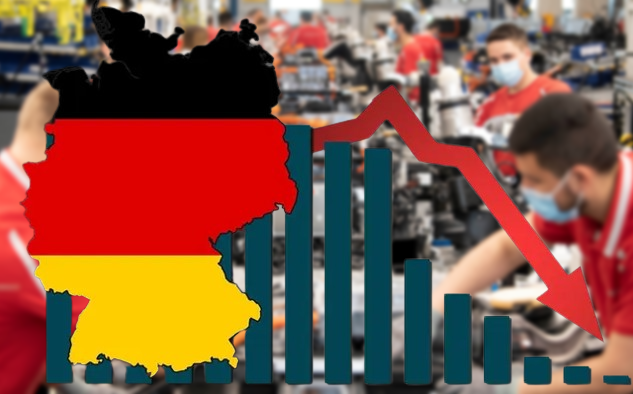
- Factors like a weaker Chinese economy, and geopolitical tensions, like Russia’s actions in Ukraine, have contributed to a downturn.
- Long-term structural issues such as an ageing population, underinvestment in infrastructure, and high corporate tax rates have hindered Germany’s economic efficiency.
- Strategic reforms and concerted efforts from all stakeholders, can revitalize the economy and reclaim Germany’s status as a leading global player.
Germany, long hailed as Europe’s economic powerhouse, finds itself grappling with a myriad of challenges that have led some economists to label it the “sick man of Europe.” As railway staff, lorry drivers, and farmers threaten strikes over various grievances, it’s essential to examine the root causes of Germany’s economic struggles and explore potential remedies.
Germany’s economy, once buoyed by sweeping labour reforms and robust export demand, is now facing headwinds. Factors such as a weaker Chinese economy and geopolitical tensions, like Russia’s actions in Ukraine, have contributed to a downturn. Additionally, long-term structural issues such as an ageing population, underinvestment in infrastructure, and high corporate tax rates have hindered economic efficiency.
Navigating rapid economic shifts necessitates agile and decisive governance, qualities that some argue are lacking in Germany’s bureaucratic system. The country’s digital infrastructure lags, impacting productivity and hindering administrative processes. Moreover, Germany’s reputation for bureaucratic red tape further exacerbates the problem, stifling innovation and efficiency.
The current coalition government, led by Olaf Scholz, faces dwindling public approval amidst mounting economic woes. Inherited problems coupled with external crises like the COVID-19 pandemic and energy shortages have strained the government’s ability to enact meaningful reforms. Recent constitutional court rulings have further complicated budgetary matters, making it challenging to address critical issues such as climate action and industrial modernization.
Various sectors, including transportation, agriculture, and healthcare, are mobilizing for strikes in response to perceived injustices. Railway workers demand shorter workweeks, farmers protest cuts to agricultural subsidies, and hauliers oppose increased tolls. These protests reflect deep-seated concerns about livelihoods, competitiveness, and government support across different industries.
Path Forward
To effectively address the multifaceted challenges facing Germany’s economy, a comprehensive strategy is imperative. Here’s a detailed blueprint for navigating these turbulent times and fostering sustainable growth.
Germany must prioritize the digitization of government services to streamline bureaucratic processes and enhance efficiency. This entails investing in advanced digital infrastructure, expanding high-speed broadband access, and implementing user-friendly online platforms for services such as building permits, licenses, and company registrations. Embracing emerging technologies like artificial intelligence and blockchain can further optimize administrative functions, reducing red tape and facilitating faster decision-making.
To catalyze economic growth, Germany should embark on a significant infrastructure investment program. This includes modernizing transportation networks, upgrading energy systems for sustainability, and expanding digital connectivity in underserved areas. By prioritizing projects that enhance productivity, facilitate trade, and support sustainable development, Germany can create jobs, attract investment, and lay the foundation for long-term prosperity.
Addressing labour market challenges requires a nuanced approach that balances flexibility with social protections. Germany should undertake reforms to promote workforce participation, upskill workers for emerging industries, and ensure fair wages and working conditions. This may involve revisiting labour laws to accommodate evolving employment patterns, incentivizing lifelong learning and vocational training, and fostering entrepreneurship and innovation. Collaborative efforts between government, employers, and trade unions are essential to achieving consensus and implementing effective reforms.
Germany’s high corporate tax rates hinder competitiveness and discourage investment. To stimulate economic growth and encourage business expansion, the government should consider comprehensive tax reform. This includes lowering corporate tax rates, simplifying the tax code, and eliminating loopholes and inefficiencies. At the same time, measures should be implemented to ensure that corporations contribute their fair share to society, such as enforcing anti-tax avoidance regulations and promoting corporate social responsibility.
In conclusion, Germany’s current economic struggles stem from a combination of external pressures and internal shortcomings. However, with strategic reforms and concerted efforts from all stakeholders, there is potential to revitalize the economy and reclaim Germany’s status as a leading global player.
References:
- https://www.nytimes.com/2024/01/18/world/europe/german-economy-standstill.html
- https://m.economictimes.com/news/international/world-news/germany-enters-recession-europes-largest-economy-is-breaking-down/articleshow/100530591.cms
